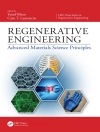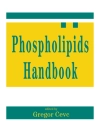This book is about the evolution and nature of cooperation and altruism in social-living animals, focusing especially on non-human primates and on humans. Although cooperation and altruism are often thought of as ways to attenuate competition and aggression within groups, or are related to the action of “selfish genes”, there is increasing evidence that these behaviors are the result of biological mechanisms that have developed through natural selection in group-living species. This evidence leads to the conclusion that cooperative and altruistic behavior are not just by-products of competition but are rather the glue that underlies the ability for primates and humans to live in groups. The anthropological, primatological, paleontological, behavioral, neurobiological, and psychological evidence provided in this book gives a more optimistic view of human nature than the more popular, conventional view of humans being naturally and basically aggressive and warlike. Although competition and aggression are recognized as an important part of the non-human primate and human behavioral repertoire, the evidence from these fields indicates that cooperation and altruism may represent the more typical, “normal”, and healthy behavioral pattern. The book is intended both for the general reader and also for students at a variety of levels (graduate and undergraduate): it aims to provide a compact, accessible, and up-to-date account of the current scholarly advances and debates in this field of study, and it is designed to be used in teaching and in discussion groups. The book derived from a conference sponsored by N.S.F., the Wenner-Gren Foundation for Anthropological Research, the Washington University Committee for Ethics and Human Values, and the Anthropedia Foundation for the study of well-being.
Table des matières
Part I. Cooperation, Altruism and Human Evolution.- Chapter 1-Introduction: Altruism and Cooperation.- Chapter 2. Part 1 Introduction.-Chapter 3. The Influence of Predation on Primate and Early Human Evolution: Impetus for Cooperation.- Chapter 4. Born to cooperate? Altruism as exaptation, and the evolution of human sociality.- Chapter 5. The Phylogenesis of Human Personality:Identifying the Precursors of Cooperation, Altruism, and Well-Being.- Part II. Altruism and Cooperation Among Non-human Primates.- Chapter 6. Cooperation and the Evolution of Social Living: Moving Beyond the Constraints and Implications of Misleading Dogma: Introduction Section II.- Chapter 7. Primates, Niche Construction, and Social Complexity: The Roles of Social Cooperation and Altruism.- Chapter 8. Collective Action and Male Affiliation in Howler Monkeys (Alouatta caraya).- Chapter 9. Mechanisms of Cohesion in Black Howler Monkeys.- Chapter 10. Social Plasticity and Demographic Variation in Primates.- Part III. Altruism and Cooperation Among Humans: The Ethnographic Evidence.- Chapter 11. Altruism and Cooperation Among Humans: The Ethnographic Evidence: Introduction.- Chapter 12. Violence Reduction among the Gebusi of Papua New Guinea – and Across Humanity.- Chapter 13. Human Nature: The Nomadic Forager Model.- Chapter 14. Born to Live: Challenging Killer Myths.- Chapter 15. Notes toward a human nature for the third Millennium.- Part IV. Neurological and hormonal mechanisms for cooperation and altruism.- Chapter 16. Behavior meets Neuroscience: Achievements, Prospects, and Complexity: Introduction to Section 4.- Chapter 17. The Neurobiology of Cooperation and Altruism.- Chapter 18. Behavioral and Neuroendocrine Interactions in Affiliation.- Chapter 19. Early Social Experience and the Ontogenesis of Emotion Regulatory Behavior in Children.- Part V. Human Altruism and Cooperation: Needs and the Promotion of Well-being in Modern Life.- Chapter 20:Introduction.- Chapter 21. Altruism as an Aspect of Relational Consciousness and how Culture inhibits it.- Chapter 22. Hope Rekindled: Well-Being, Humanism, and Education.- Chapter 23. Promoting Well-Being in Health Care.- Chapter 24. Moving Beyond the Nature/Nurture Distinction: Promotion of Transdisciplinary Research (Overview of the Institute of Medicine Report on Genes, Behavior, and the Social Environment).












